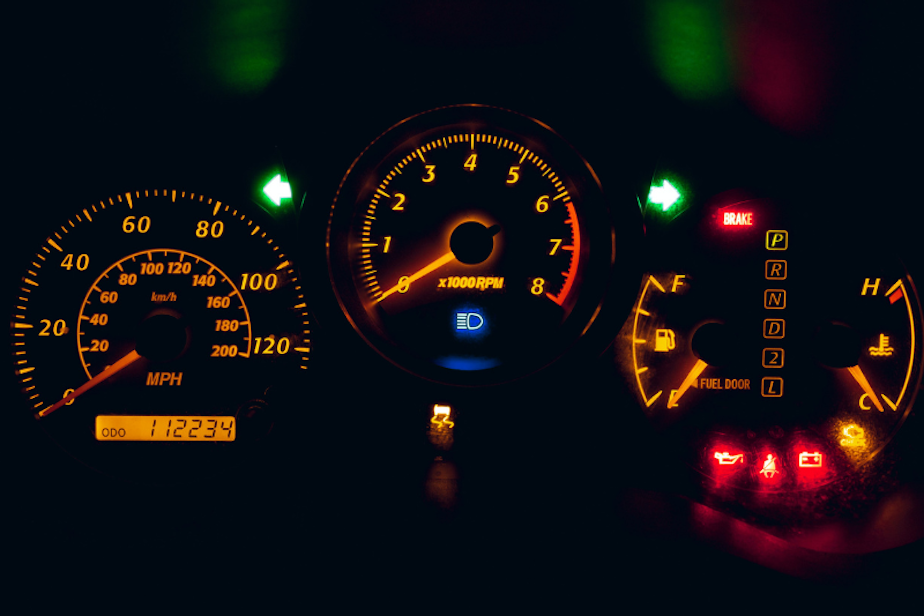Pay per gallon or pay per mile?: Today So Far

- Would you rather pay 49 cents per gallon of gas, or 2.5 cents for every mile you drive?
- Hydropower in the western US was up 13% in 2022.
- The "holy crap, that's in our products" news just kept coming this week.
This post originally appeared in KUOW's Today So Far newsletter for February 24, 2023.
Washington state was a little more climate friendly last year, at least, considering how we get our energy. Hydropower production was at a 20-year low leading into 2022, largely due to ongoing droughts, but this form of energy increased 13% last year.
There was more snow and rain for the region, which added up to a 17% rise in hydropower in Washington state, and a 19% increase in Oregon. This basically means that the region was using more of a renewable form of energy during that time, instead of relying more on fossil fuels to produce electricity.
As KUOW's John Ryan reports, 11 states in the Western USA produce most of the nation's hydropower, but this region has been suffering under a megadrought for a couple decades. So last year's numbers sound like good news. But hydropower has its critics and drawbacks. Check out the full story here.
Would you rather pay 49 cents per gallon of gas, or 2.5 cents for every mile you drive? That's the big question as Washington state lawmakers consider how to fund roads in the years ahead.
The move to start taxing drivers for every mile they go has long been in the making. The proposal has finally made it to the Capitol in Olympia. The basic idea is that the state's gas tax is taking in less and less money over time. Cars have become more fuel efficient, hybrids are a thing, and electric cars don't even pay the gas tax. Yet, this money is what Washington relies on to maintain roads. Right now, Washington is charging 49.4 cents per gallon of gas at the pump (the feds also charge 18.4 cents on top of that).
Sponsored
The proposed solution to this dilemma is to replace the gas tax with a pay-per-mile tax. Drivers would either plug a GPS device into their car, which would count the miles, or they would manually record it. The state would then charge a tax. Some Democrats seem to like the idea, and some Republicans aren't so into it. And if you're shaking your head over someone tracking you with GPS, and are reading this newsletter on an electric device like a phone or laptop, then you sort of have a pot/kettle situation going on. The thing about this issue is that EVs driving around Washington state don't pay a gas tax. Instead, they pay an extra $225 in registration fees each year. Part of the current proposal would allow EV owners to move over to the pay-per-mile tax. Check out the full story here.
The "holy crap, that's in our products" news just kept coming this week. I already brought up a recent Consumer Reports assessment of popular chocolate bars which were found to have potentially harmful metals in them.
The next day, KUOW had another story about a bill in Olympia that would ban harmful substances in cosmetics, such as lead and formaldehyde. I was pretty ignorant about this. Sure, makeup is not a big part of my daily life, but I still spit out my coffee and said a big "WTF" upon learning that such ingredients were actually a thing. Then, the next day, REI announced it will stop selling products with PFAS in them. PFAS are known as "forever chemicals" and have been used in a lot of products over the years, from firefighting foam to shampoos and fabrics. This stuff doesn't break down and go away, and can have harmful effects on health. REI has now committed to stop selling products, like waterproof clothing and cookware, with PFAS in them.
The Friday Five: News you may have missed this week, and other cool stuff
- Mike's adventures in art: A weekend full of wishes
- Hybrid cars are still incredibly popular, but are they good for the environment?
- This group gets left-leaning policies passed in red states. How? Ballot measures
- The Taliban ended college for women. Here's how Afghan women are defying the ban
- Post-Roe, WA is a health care ‘sanctuary’ — for both patients and providers
Sponsored
AS SEEN ON KUOW

Some residents of Jackson Park Village, a low-income housing community near Shoreline, say that it has "inhumane" living conditions for the people who live there — mostly families of color. So young residents came together to organize for better living conditions by starting the Jackson Park Youth Coalition. (Courtesy of Sadeen Al Ziyad)
DID YOU KNOW?
Washington is the "Evergreen State" ... but not officially. That might sound a bit odd, but despite "Evergreen State" being printed on countless promotional shirts, bumper stickers, license plates, and more, Washington has never officially adopted the slogan. Unlike other things, such as the Willow Goldfinch (Washington's official state bird), or the Green Darner Dragonfly (Washington's state insect).
Sponsored
This could change pretty soon, however. There is a bill working its way through the Legislature in Olympia that would make "Evergreen State" Washington's official nickname. It passed in the Senate and is now going through the House.
"Evergreen State" is a term proposed by Seattle resident Charles Conover in 1890. As historian Feliks Banel has explained, Conover made a move from the newspaper business to the real estate business, and he opted to use some of his publishing experience to inspire more business to come their way. He published a promotional booklet about Seattle and Washington and called it "Washington, The Evergreen State and Seattle, Its Metropolis." They sent the booklet across the USA. Soon, "Evergreen State" was being used by others, such as chambers of commerce and tourism groups. The nickname has stuck ever since.
The current effort to establish "Evergreen State" as Washington's nickname is not the first time lawmakers have attempted to make it official. In 2009, state Sen. Jim Honeyford (R-Sunnyside) crafted a bill for this. It didn't pass.
ALSO ON OUR MINDS

Sponsored
China calls for a cease-fire and peace talks between Russia and Ukraine
As Russia's war in Ukraine enters its second year, Beijing is pushing harder for a negotiated end to the war. It has repeatedly suggested it would be willing to broker any cease-fire negotiations, a proposal Ukrainians are wary of because of China's close ties with Moscow.

